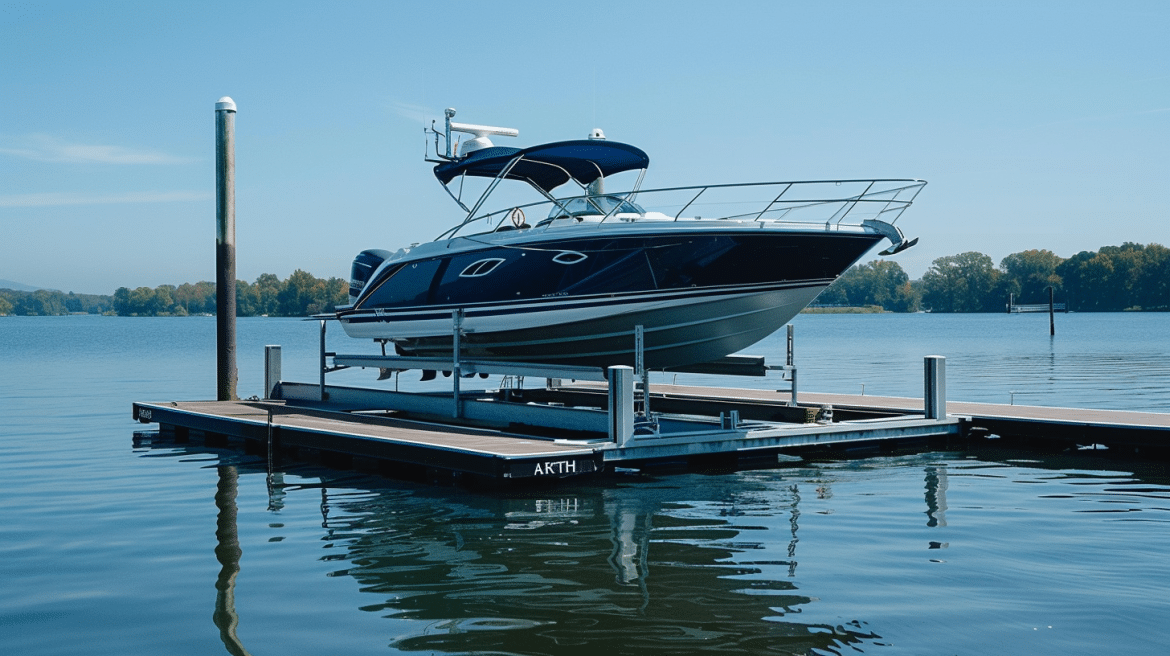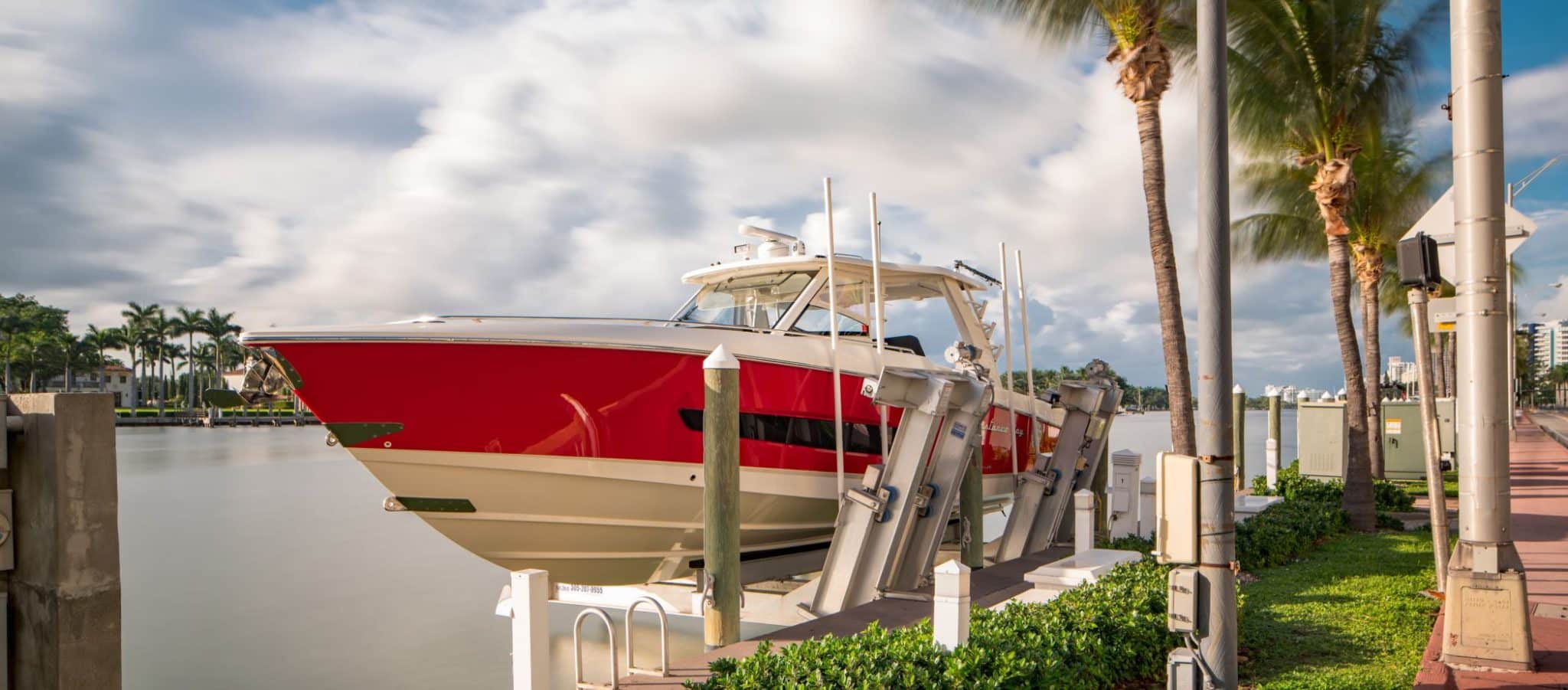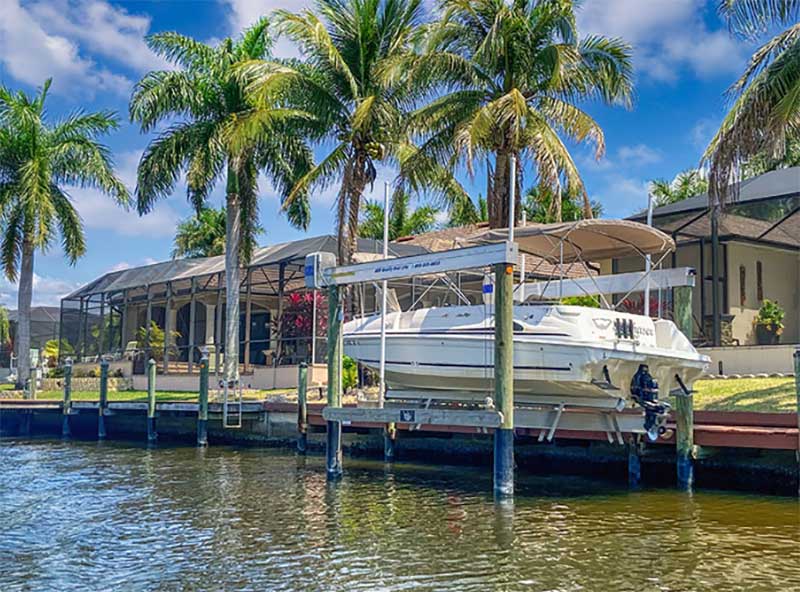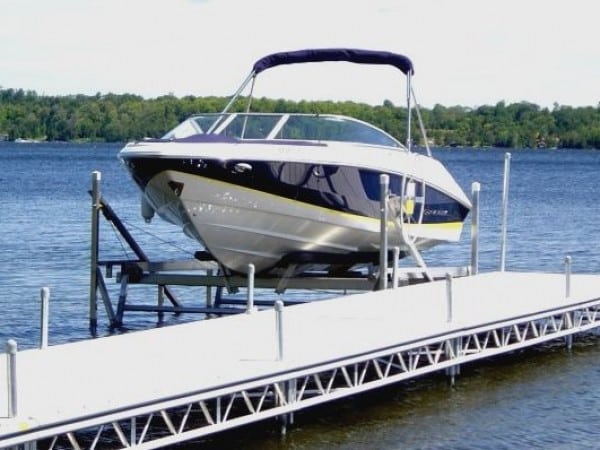Just like you took the time to pick the perfect boat for your needs, you need to do the same when buying the accompanying equipment. For instance, you need to carefully choose a boat lift. This structure is necessary to keep your boat safe from water damage and in its best condition.
There are several types of boat lifts available on the market, but the choice comes down to whether you want an electric or a manual boat lift. You might think this is an easy choice, but before making your decision, make sure to get yourself familiar with the pros and cons of both options. To do that, keep reading this article!
The Main Difference Between Electric and Manual Boat Lifts
Electric boat lifts, as their name suggests, are powered by electricity. They need a motor as their electricity source to work properly. Usually, they are operated by pressing a button or pulling a lever, but neither one of these actions requires a lot of physical work.
Manual boat lifts, on the other hand, have no motors. Instead, they have hand crank mechanisms that you need to pull and operate manually. However, just because manual lifts require you to do all the work, it doesn’t mean the electric boat lift is always the best option.
Pros and Cons To Consider
Both electric and manual lifts come with some advantages and disadvantages. Which choice is better – it depends on your individual situation and needs. Let’s first learn more about manual lifts and what makes them a good or bad choice for you:
Manual Boat Lifts – Pros and Cons
Manual boat lifts are, in general, cheaper than electric boat lifts, and that’s important information for many potential buyers. They are also much simpler than electric boat lifts, which means they are easier to operate. There are fewer things that can malfunction or break down. As such, these boat lifts are also easier to maintain. Even if some issues arise – they are mostly mechanical, which means they are relatively easy to solve
Additionally, manual boat lifts are usually lighter than electric ones, so they are easier to relocate. Finally, you don’t have to use a motor or another electricity source to operate this type of boat lift. That’s great for areas with limited sources of electricity. It is also a more eco-friendly and environmentally conscious option.
Obviously, the biggest disadvantage of manual boat lifts is the fact that they require physical effort. That can become especially strenuous if you have to use the boat lift every day or if your boat is large and heavy. No matter how strong you are, it gets tiring.
Furthermore, if you are in a hurry, you won’t like how fast (better said: slow) manual boat lifts are. No matter how fast you try to pull the mechanism, you will never be as fast as with the electric boat lift. Manual boat lifts also lack certain features, such as automated stop points or remote controls. Lastly, injuries are far more common with manual boat lifts.
Electric Boat Lifts – Pros and Cons
Now, it’s time to take a closer look at electric boat lifts. Let’s start with the pros first. As you probably already assume, the biggest advantage of electric boat lifts is their convenience. You just press a button and let the motor do the hard work for you. Unlike with manual boat lifts, you won’t have to struggle physically. You will like this part if you have a large boat!
Additionally, you will be amazed at the speed of electric boat lifts, which is perfect for when you can’t wait to ride your boat. You can even adjust the speed to match your preferences and other needs. There are also some other useful features, such as remote control. Finally, electric boat lifts will lower and raise your boat with more precision, which minimizes the chances of damage and injuries.
Of course, electric boat lifts come with some issues and disadvantages. First of all, the upfront cost of choosing such a boat lift is higher than that of manual boat lifts. The motor, wires, and other electrical components are far more likely to malfunction and break down. Also, you are always power-dependant, which can be a big problem in certain situations.
Moreover, electric boat lifts require more maintenance on a regular basis, and occasional repairs will probably be more complex (and expensive). Finally, let’s not forget about the environmental impact of electric boat lifts, as these machines can use a lot of electricity.
The Verdict – Electric or Manual?
So, now that you know the pros and cons of both options, which one is better? there is no clear winner here, but let’s break it down. For example, if you have a small boat that you don’t use every day, a manual boat lift is the best option for you. It is also a better choice if you like to keep things simple and don’t like to deal with too much maintenance and complex repairs.
However, if you want convenience and efficiency, then look no further than electric boat lifts! This is especially a good choice if you have a large boat that you use frequently. Additionally, if you want more control, precision, and improved safety, you should definitely go for an electric boat lift-
Lastly, apart from choosing the boat lift type that’s better for you, you should also pay attention to its quality. Regardless of if you choose a manual or electric boat lift, you should buy it from a reputable and well-established boat lift manufacturer. By doing so, you can even get a warranty, some useful lift accessories, and someone to call in case of any issues or questions.
Conclusion
Both electric and manual boat lifts are great options to store your boat when you’re not using it. However, there are certain differences between them that should help you pick the best option for you and your boat. Consider your situation and your needs, and keep in mind all the pros and cons that we mentioned in this article. This will help you choose the boat lift that suits your needs perfectly!




